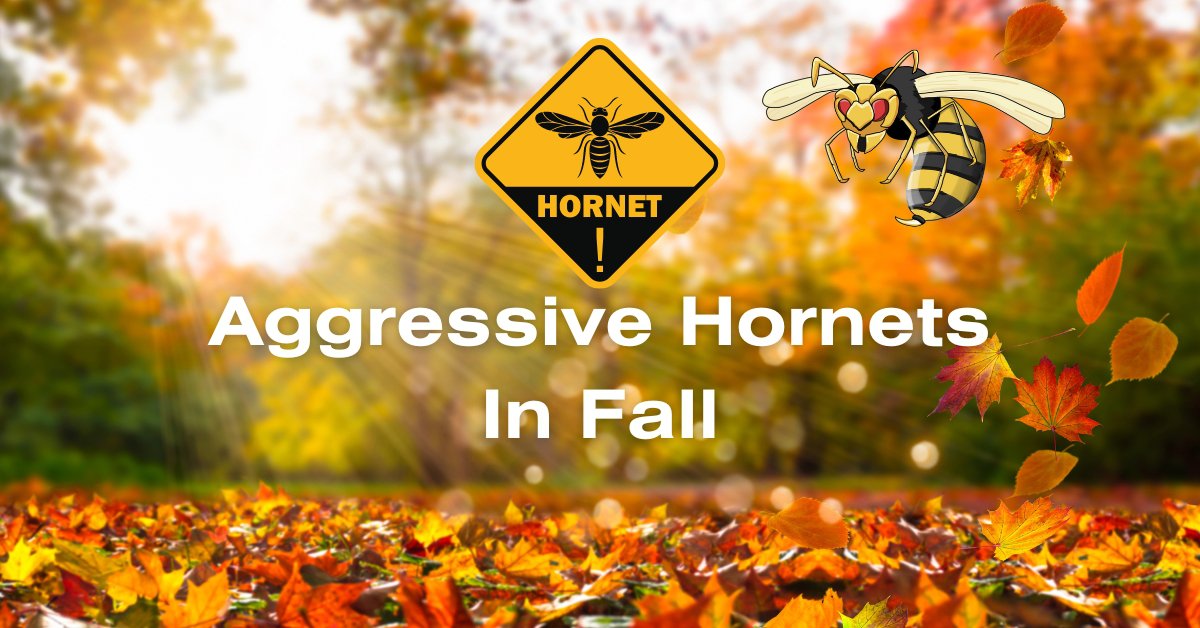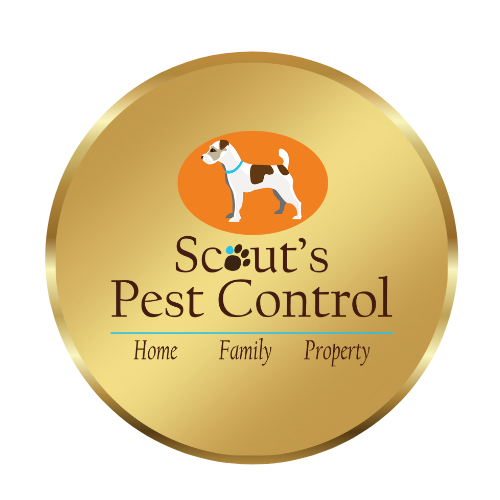As autumn’s poetic transformation begins in South Carolina, the beauty of falling leaves and cooler temperatures enchants many. Yet, hidden in this picturesque setting is a less romantic aspect: the escalating aggression of hornets. This behavior might seem sudden and unexpected, but understanding the reasons behind it can empower homeowners to address the issue safely and effectively. Aggressive Hornets can be very dangerous to homeowners and especially members of the family. Understanding their behavior and what to do can help reduce any possible conflict between humans and hornets.

What Are Hornets?
Hornets are a subset of wasps, with the most identifiable species in South Carolina being the European hornet. Yellow jackets are commonly known for their intimidating nature, but these are even bigger and more imposing. They can be quite terrifying, and if you have a fear of Hornets, they can cause severe anxiety. They display with a mix of yellow, brown, and reddish-brown; these flying insects have a presence that’s hard to miss.
Hornets are not just pests; they’re vital for maintaining ecological balance. They keep the population of other insects, like flies and spiders, in check, making gardens and outdoor spaces more pleasant.
Why Hornets Become Aggressive in the Fall

The main reason is the dynamics of the life cycle. It is a natural behavioral pattern. Hornets operate on a particular life cycle. As summer ends, the hive produces new queens and males for mating. Once these queens mate, they hibernate, laying the foundation for next year’s colonies. However, worker hornets will not survive until spring. Sensing their limited time, they buzz with heightened activity, leading to increased aggression. There’s a kind of competitiveness around them and that can come with it’s own problems with feeding.
Food Shortages
Early fall signals a change in hornet diet. Their preferences shift from protein-based foods, like other insects, to sugary ones. This transition is crucial for their survival. So, when their usual prey dwindles, they venture closer to human habitation. Here, spilled juices, fruits, and other sweet attractions become targets, leading to more human-hornet encounters. Of course, if you still have flowering plants and shrubs in fall, then you already have given them the attractor factor.

Nest Protection
The instinct to protect one’s home is strong in hornets. With winter approaching, any threat, even if perceived, is met with a Swift and aggressive response. Regular outdoor activities that homeowners might engage in can inadvertently provoke these creatures. If you love working in your garden, then you better be on high alert.
The Aggresive Hornets Sting and Its Implications
Hornet stings can be particularly painful. Unlike bees, which can only sting once, hornets can sting multiple times. Their venom contains a mix of chemicals that cause pain, inflammation, and allergic reactions in some people.
For a small segment of the population, being stung can lead to anaphylaxis, a dangerous allergic reaction that manifests through swelling, breathing difficulties, and a decrease in blood pressure. Immediate medical intervention becomes crucial in such scenarios.
Moreover, it is absolutely essential to exercise utmost caution and promptly consult professionals when confronted with hornet nests, since getting stung repeatedly can lead to severe complications, regardless of whether you have an allergy or not.
Risks to Homeowners
Here is what you should take into consideration if you are a homeowner. Being vigilant in the Fall is crucial to prevent you or your family from becoming a target of aggressive hornets who perceive you as a threat to their existence.
- Stings: We’ve touched upon this, but it’s worth reiterating. The pain and potential allergic reactions make hornet encounters risky.
- Multiple Nests: A property can host more than one nest. Trees, roof eaves, or even internal structures can become nesting sites. The more nests there are, the higher the risk.
- Potential Property Damage: Beyond their sting, hornets can be destructive. European hornets, for instance, might strip bark from trees to access sap. Some even chew through house materials, causing noticeable damage.
Solutions: Why Choose Professional Pest Control Services

As the aggression of hornets escalates in the fall, it’s important to address the issue safely and effectively. However, dealing with aggressive hornets can be challenging for homeowners. That’s why choosing professional pest control services is a wise decision. Pest control experts have the knowledge, experience, and tools to handle hornet infestations effectively and safely. They can identify nest locations, remove them professionally, and provide ongoing prevention measures to ensure your home remains hornet-free. Here are some of the benefits of using our service. Don’t let aggressive hornets take over your property.
Expert Identification: It’s crucial to know your enemy. Our experts can distinguish between various wasp species, ensuring that the removal method is effective and above all – fast.
Safe and Comprehensive Removal: A professional approach ensures that nests are removed without leaving behind remnants that could lead to a resurgence.
Preventive Measures: Pest control isn’t just about addressing the current problem. Our team offers guidance on preventive actions, ensuring long-term solutions. We also respond fast to bring any infestation of any insect under control.
Eco-Friendly Solutions: For the environmentally conscious homeowner, it’s reassuring to know that we prioritize methods that don’t harm your pets or the surrounding environment.
Choose an Award Winning Service
South Carolina’s fall should be a time of relaxation and preparation for the holiday season and the winter ahead, not a battle with aggressive hornets. Knowledge is power, and understanding hornet behavior is the first step in dealing with them effectively. Rely on Scouts Pest Control to ensure a safe, hornet-free environment for you and your family. Enjoy autumn’s embrace without the looming threat of these stinging invaders.





